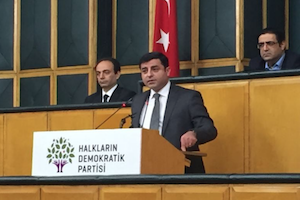Kurdish Mayoral Dismissals: Narrowing Political Spaces, Widening the Distance from Ankara
By Gareth H. Jenkins
September 4, 2019
The removal of the democratically elected mayors of three municipalities in the predominantly Kurdish southeast of the country and their replacement with government appointees has dealt yet another blow to Turkey’s already tattered democratic credentials. Although it is unlikely to lead to an imminent sustained increase in violence or civil unrest, by further excluding Kurds from political processes the government is exacerbating the already growing belief in the southeast that their future lies in some form of detachment from Ankara.
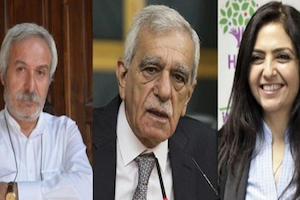
Syrian Safe Zone Moves U.S.-Turkey Relationship Beyond Kobani
By Micha’el Tanchum
August 29, 2019
With Turkey poised for a cross-border invasion to clear northeastern Syria of U.S.-aligned Kurdish forces, Washington and Ankara announced an agreement on August 7, 2019 to jointly create and patrol a safe zone in the region, averting the possibility of the two NATO allies exchanging fire. Far from a climb down for Ankara, the agreement enables Turkey to achieve its minimal goals, and probably more. At the same time, it provides a significant yet delicate reset opportunity for Turkey-U.S. relations that have been severely strained since the U.S.-Kurdish military partnership than began with Battle of Kobani.
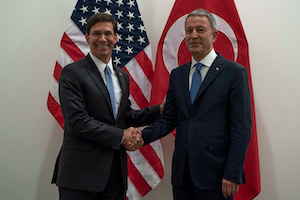
Defying Denial: Turkey's Kurds and the March 31 Local Elections
By Gareth H. Jenkins
March 27, 2019
Despite intense pressure from the Turkish state, including the imprisonment of a large proportion of its leadership, the Peoples’ Democratic Party (HDP) is again expected to win the majority of votes in the predominantly Kurdish southeast of the country in the nationwide local elections on March 31, 2019. But President Recep Tayyip Erdoğan’s repeated public threat to prevent HDP officials from holding office means that, for Turkey’s Kurds, the election will be less about choosing who will run their local authorities than their own identity amid a growing conviction that their future lies in a considerably looser relationship with the central government in Ankara.
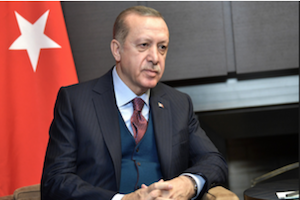
Will the Kurdish Question Secure Erdoğan's Re-election?
By Halil Karaveli
June 18, 2018
The Kurdish question may serve President Recep Tayyip Erdoğan, helping to secure his re-election. The election campaign has demonstrated that Erdoğan no longer energizes the masses; after fifteen years in power, the Turkish president shows every sign of being worn out. He is no longer an inspirational leader; he has nothing new to say or to promise. But Erdoğan nonetheless retains the loyalty of the AKP base. And as the spokesperson of the nationalism of the Turkish state he is assured of enough non-partisan support as well.
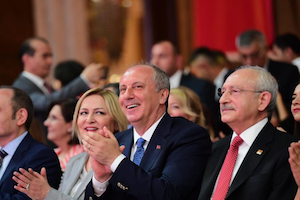
Turkey's Kurds at the Crossroads: To the Political Graveyard of Turkey or To Be the Gravediggers of Turkish autocracy?
By Cengiz Çandar
May 22, 2018
The outcome of Turkey’s upcoming election will be determined by the Kurdish voters. This is ironic since the presidential system that the election will enshrine is designed to exclude the Kurds from the political system of Turkey. The sequence of fatal mistakes that have been committed since 2015 show that the Turkish state is determined to deprive the Kurds from having a political say, whatever the cost. The Kurds will either liquidate Turkish autocracy or be amputated from the Turkish body politic.
